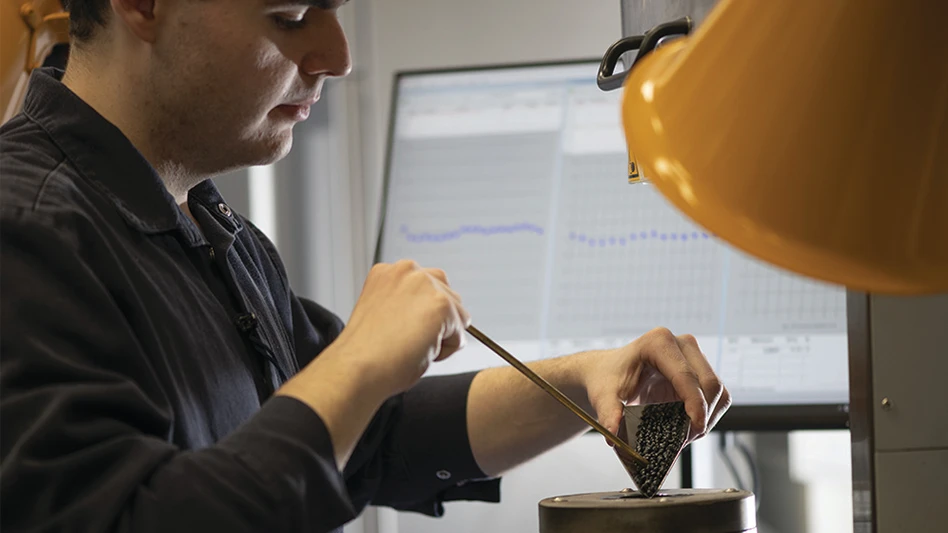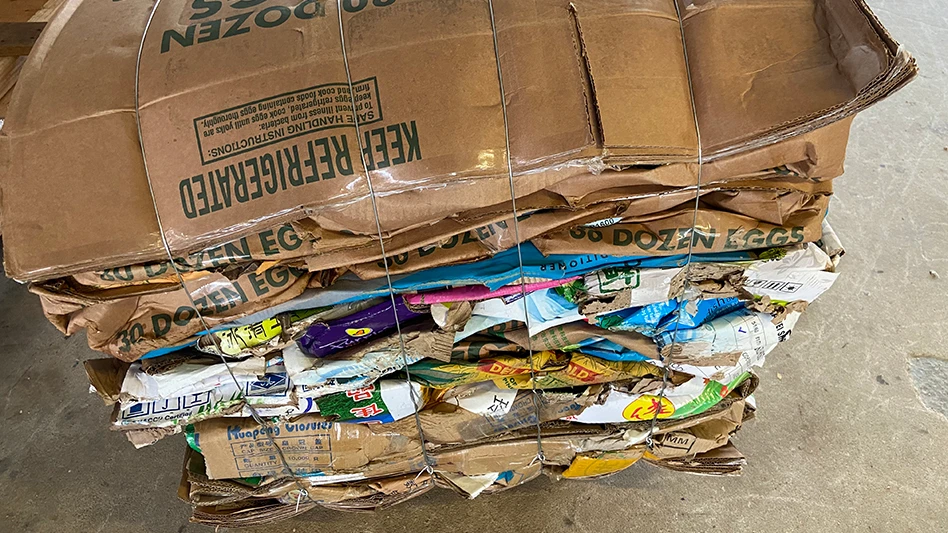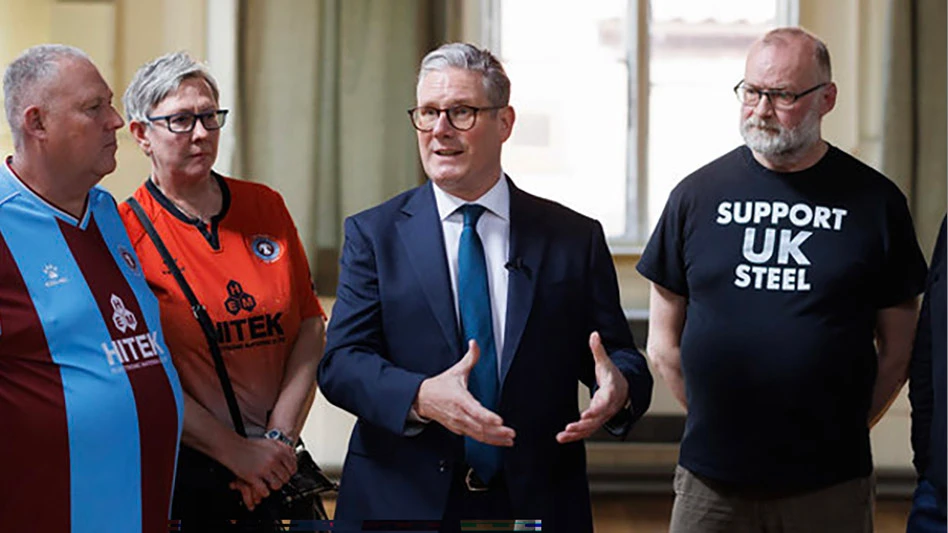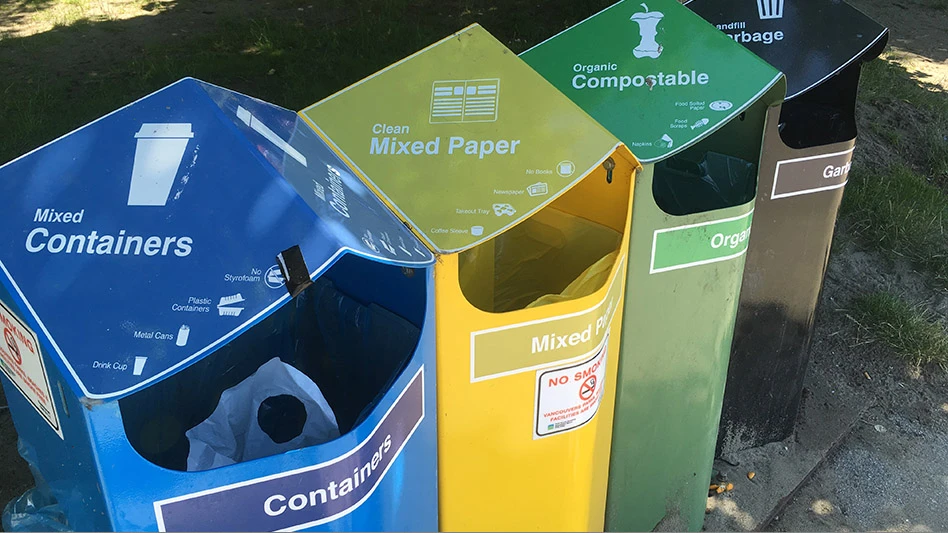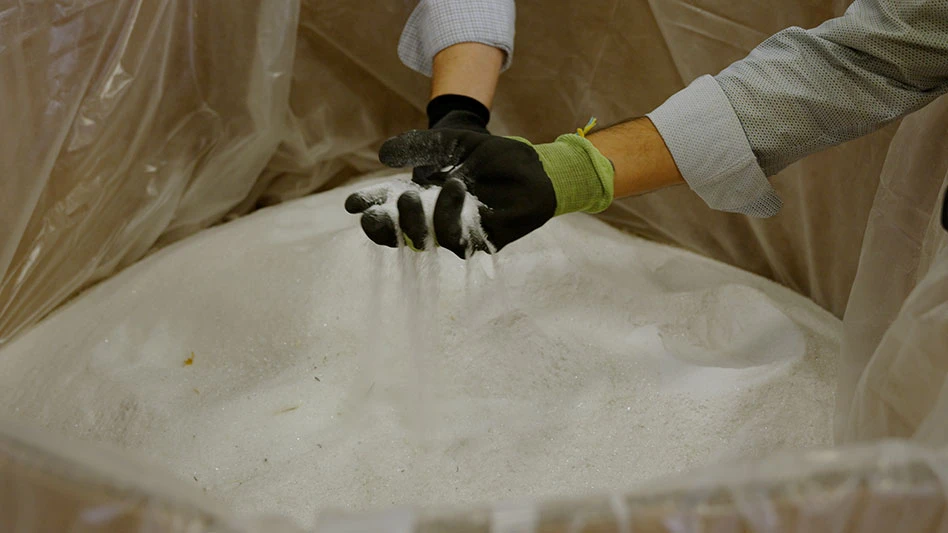
Photo courtesy of Solarcycle
Solar photovoltaic module provider Heliene, based in Canada with a manufacturing facility in the U.S. in Minnesota, will purchase “ultra-low carbon glass” that uses recycled materials from retired solar panels to make new solar glass from Solarcycle, based in Arizona.
Solarcycle, which is building a circular supply chain for solar panels, will add to Heliene’s existing roster of domestic manufacturing suppliers, including U.S. makers of silicon solar cells and aluminum frames.
RELATED: A virtuous cycle
The company says it will sell at least 4 gigawatts, or 20 million square meters, of recycled glass to Heliene over the next five years, the equivalent of about 3,700 football fields.
Both companies have announced expansion plans on the heels of rapid domestic solar manufacturing growth in the U.S.
Heliene has manufacturing capacity at its Mountain Iron, Minnesota, facility and is bringing additional module capacity in the Minneapolis Metro area and also has announced a joint venture with Premier Energies of India to manufacture cells.
Earlier this year, Solarcycle announced a glass supply agreement with Silfab Solar, North America’s leading PV solar manufacturer. The framework agreement expands Silfab’s existing solar panel recycling partnership with Solarcycle and further advances Silfab’s ongoing sustainability objectives.
In partnership with Georgia Gov. Brian P. Kemp, Solarcycle also plans to build a $344 million solar glass manufacturing facility in Cedartown, Georgia, in Polk County, that will create more than 600 new full-time jobs. The company describes the site as the first-of-its-kind in the U.S. to use recycled materials from retired solar panels to make new solar glass.
Kemp called the plant a "transformational investment for the Polk County community" that "will help drive its economy for years to come.”
Solarcycle currently operates facilities in Odessa, Texas, and Mesa, Arizona, and has inked long-term partnerships with more than 40 of the nation’s largest solar energy companies to reuse and recycle their solar panels, including Georgia-based solar manufacturer Qcells.
Solarcycle says its proprietary recycling technology allows it to extract 95 percent of the value from used solar panels.
“We need to build more solar modules in America to increase the resiliency and sustainability of America’s fastest-growing source of power,” Solarcycle co-founder and CEO Suvi Sharma says. “We are excited to partner with Heliene so that they can use our ultra-low carbon solar glass to produce the next generation of American solar panels.”
The Georgia plant, which will be the first of the companies facilities to manufacture glass in addition to recycling solar panels, will position the company as one of the first manufacturers of specialized glass for crystalline-silicon (c-Si) photovoltaics in the U.S., Solarcycle says, with the capacity to make 5 to 6gigawatts worth of solar glass annually. The glass will be sold directly back to the domestic solar manufacturers and fill a critical gap in the country’s supply chain to build more solar panels in America.
Solarcycle says construction on the plant is scheduled to begin this year, with operations expected to begin in 2026.
The company's partnership with Heleine will aid solar developers in additional qualification for Inflation Reduction Act (IRA) benefits and will help stabilize costs and domestic inventory, Solarcycle says. Purchasing Solarcycle’s U.S.-made glass allows Heliene to reduce the climate impacts of manufacturing by more than 30 percent and of shipping by more than 50 percent.
“We are thrilled to add glass to our growing set of domestically made materials that will go into our modules,” Heliene CEO Martin Pochtaruk says. “Partnering with Solarcycle enables us to improve our supply of domestic components, to help our clients qualify for the domestic content adder while materially reducing our carbon footprint.”
Latest from Recycling Today
- Commentary: How EPR is transforming the packaging industry
- Acerinox names new North American Stainless CEO
- Greenwave closes 2024 books with red ink
- Steel Dynamics nets $217M on record shipments
- Massive Chinese steelmaking rebound recorded in March
- LME looks into sustainable metal pricing
- OnePlanet Solar Recycling closes $7M seed financing round
- AMCS launches AMCS Platform Spring 2025 update

